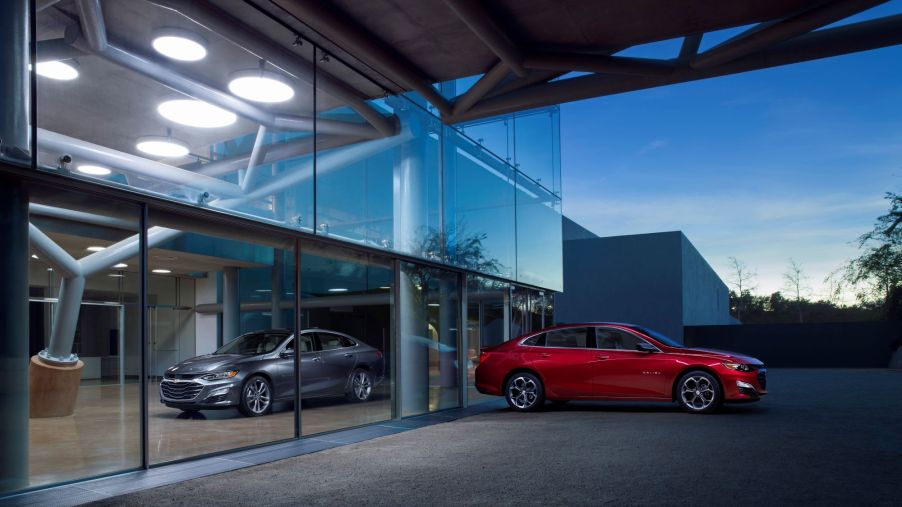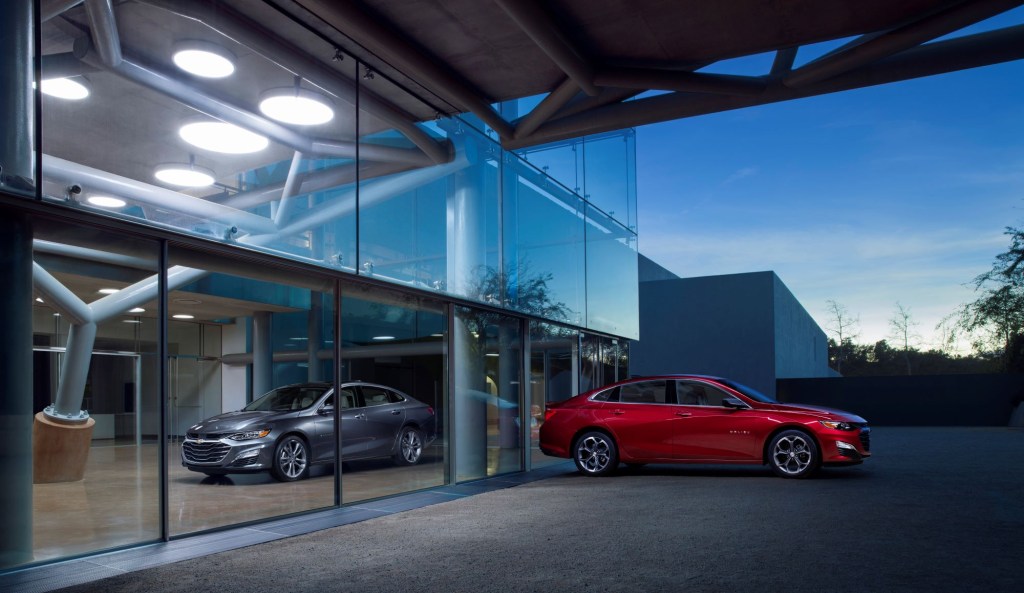
0 Chevy Malibu Models Have Been Made in the U.S. Since February 2021
There isn’t an automaker that didn’t feel the sting from the pandemic shutdowns of 2020. The industry continues to struggle with after effects despite the return to normal operations in recent months. Chevy Malibu is no different. A good example is the supply shortage of semiconductor chips.
Since most brands rely on these chips as a significant component for vehicle production, including Chevrolet, the output of many vehicle models like the Malibu continues to experience additional delays. Chevy hasn’t built a Malibu in the U.S. since February.
There’s a chip shortage causing all the fuss for Chevy Malibu

The semiconductor chip shortage came about because of a surge in demand for personal electronics during the pandemic. Americans working and learning from home needed better tech to stay connected. And the depleted reserves of those chips meant carmakers could not finish the production of various model vehicles.
These chips are responsible for powering various auto features, including backup cameras, emergency braking platforms, and power steering. Not having these chips means cars offering these basic systems can’t roll off the production line.
Automakers like Ford, Hyundai, and Volkswagen scheduled additional production shutdowns around April and May, hoping the semiconductor chip market would catch up to demand. And Chevy was hit especially hard, with several vehicle models affected by these shortages, none more so than Chevy Malibu. The GM Fairfax Assembly plant, responsible for producing the Malibu and the Cadillac XT4, idled on February 8 and remained offline.
The Chevrolet Malibu’s days were already numbered
The Chevy Malibu production line may be stalled, but the sedan’s days were already numbered. Last year, GM announced it would be dropping the Malibu from the portfolio after its present generational run finishes in 2024. The ninth-generation Malibu was redesigned in 2016 and, despite a mid-cycle restyle, continues to lag in car sales, according to metrics reported by Drive Tribe.
The current semiconductor chip shortage only exacerbates Chevy Malibu’s delay in production and reinforces its cancellation. When chip supplies become available, the automaker seems to be allocating resources to more popular pickups and SUVs, says GM Authority. General Motors hasn’t offered any news about when the Malibu production line will restart. It seems, at least for now, the sedan’s future is bleak, with the chip shortage forcing a potential early retirement.
Other vehicle models affected by the chip shortage
The car-buying trends for 2021 are rebounding but will continue to be off-kilter, with some sources estimating the global industry as a whole will produce 1.5 to five million fewer vehicles altogether this year. And according to Car and Driver, Chevrolet isn’t the only automaker stumbling in vehicle production because of the chip shortage. Volkswagen’s Bratislava, Slovakia plant shuttered SUV production from April 29 through May 7.
Ford experienced a pause in production for its highly-anticipated new Bronco Sport. This past spring, even luxury classes saw delays, including plants responsible for building the Land Rover Discovery Sport and the popular Range Rover Evoque. And Stellantis delayed production of the Dodge Durango and the Jeep Grand Cherokee, as well.
It’s hard to predict how long the semiconductor chip shortage will continue to affect the auto industry. But some signs point to a return to normal on the horizon, and analysts predict that pains will ease by the fourth quarter this year. Others suggest it may take all of 2022 to see semiconductor chip supplies fully recover.
Meanwhile, GM resumes production of the GMC Acadia, Cadillac XT5, and Chevy Traverse, reallocating those available chips to higher revenue-producing models. Consumers might have to say goodbye to the Chevy Malibu a little sooner than expected.


